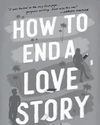試す 金 - 無料
The Way We Were
Writer’s Digest
|May/June 2025
How to use pop culture as an unexpected research vehicle.

When I was a young lad working an office job in Manhattan long ago, in a more civilized age, I used to spend my lunch hours at used bookstores all over the city.1 Most of these stores offered old paperbacks for ridiculously low prices—a quarter each, in some cases. I would routinely pick up 20 books for five bucks and add them to my overflowing library. I'm still working through those books today, decades later—I bought a lot of old paperbacks that way. Why not! They were basically free.²
Those old paperbacks were of mixed quality, but they offered an opportunity I didn’t appreciate immediately: The chance to travel back in time a bit. Digging into those old books offered a break from the bestseller lists and the constant focus on what was new, to experience examples of writing from other time periods—they were lessons about what life was like decades or even centuries ago.
The first time I was conscious of learning something about everyday life from an old book involved Dorothy L. Sayers’ classic mystery Whose Body?, featuring her aristocratic detective Lord Peter Wimsey.^3 Published in 1923, the story could be updated to the modern day pretty easily, except for one detail: The way everyone treats telephones. Phones weren't brand-new in 1923, but newspapers were still publishing articles chronicling the astonishing growth of phone networks, and phone calls were expensive and complex, especially long-distance calls. In the novel, not only does Lord Wimsey keep his phone in a special room, but making a long-distance “trunk-call” is a notable activity, and one that involves politely asking someone to make the connection and ring you back when they have your party on the line.^4
このストーリーは、Writer’s Digest の May/June 2025 版からのものです。
Magzter GOLD を購読すると、厳選された何千ものプレミアム記事や、10,000 以上の雑誌や新聞にアクセスできます。
すでに購読者ですか? サインイン
Writer’s Digest からのその他のストーリー
Writer’s Digest
100 Best Markets for Writers
A list of print and online publications looking for freelancers to contribute their knowledge on everything from pet care to finance and beyond.
65 mins
Yearbook 2026

Writer’s Digest
Memoir Plus
Add a bonus to your personal narrative for a marketing boost.
8 mins
Yearbook 2026
Writer’s Digest
Surefire Ways to Sell Your Children's Book
In my 28 years editing children's books, I've learned that publishing exists at the intersection of art and commerce.
5 mins
Yearbook 2026
Writer’s Digest
The ABCs of Freelance Success
Many freelance writers, especially those at the beginning of their careers, tend to place almost all of their professional focus on one specific component: craft.
5 mins
Yearbook 2026

Writer’s Digest
How to Write in Different Genres
Emiko Jean and Yulin Kuang share tips and strategies for how they successfully write in different genres and mediums.
8 mins
Yearbook 2026
Writer’s Digest
Small But Mighty
Why small presses might be the perfect home for your book.
8 mins
Yearbook 2026

Writer’s Digest
The Story Behind the Story
What's backstory, and what's it doing here anyway?
6 mins
Yearbook 2026

Writer’s Digest
2025 Year in Review
Publishing expert Jane Friedman recaps the biggest news in the industry.
8 mins
Yearbook 2026

Writer’s Digest
What Is Your Story Question?
When a story isn't working—when you know it's not quite coming together, when beta readers and critique partners confirm your fears but can't put a finger on why, or you're not getting offers from agents or publishers—savvy authors start trying to diagnose the issue by examining its component parts, like characterization, plot, and stakes.
6 mins
Yearbook 2026
Writer’s Digest
Writer's Digest 27th Annual 101 Best Websites for Writers
For the 27th year, Writer's Digest is shining a light on 101 websites with a goal of helping writers in a variety of ways.
26 mins
Yearbook 2026
Listen
Translate
Change font size
